

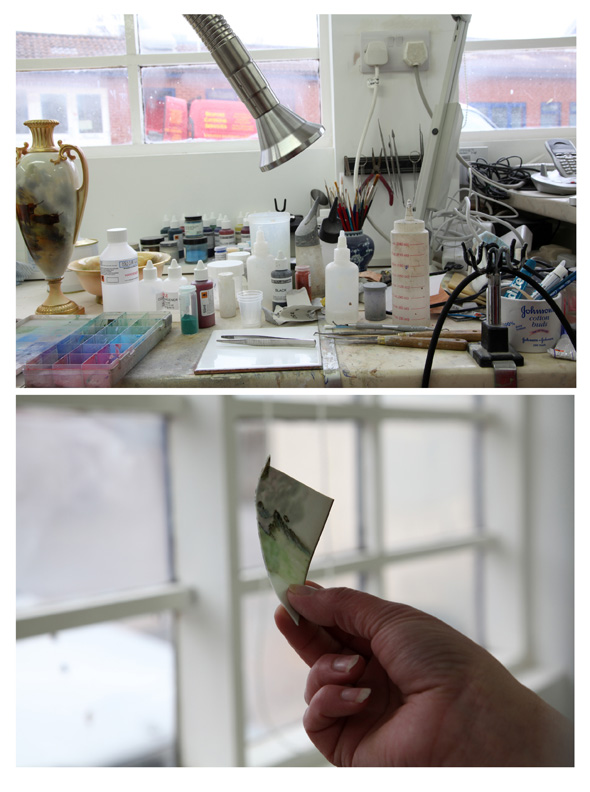

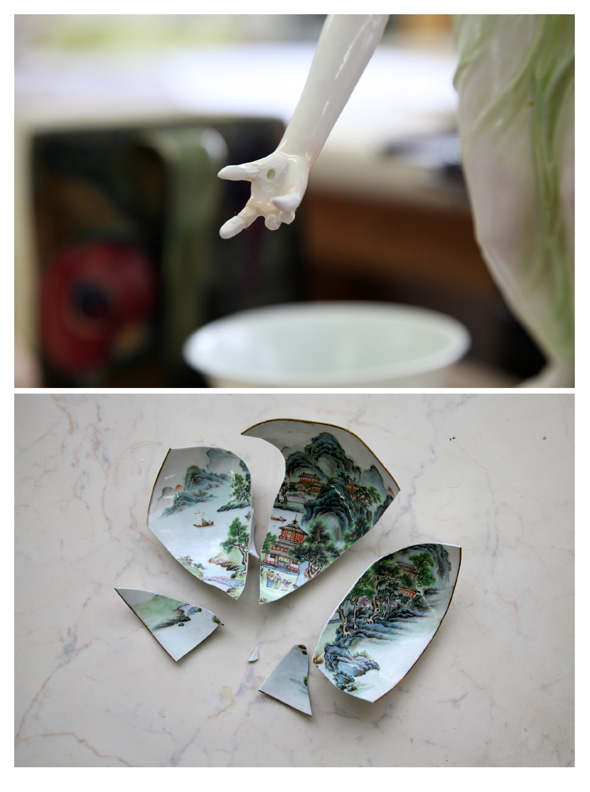
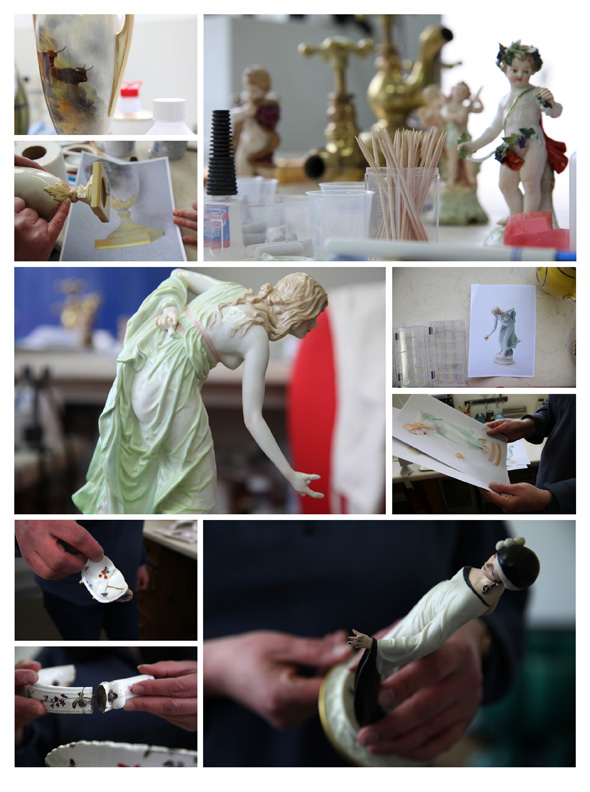
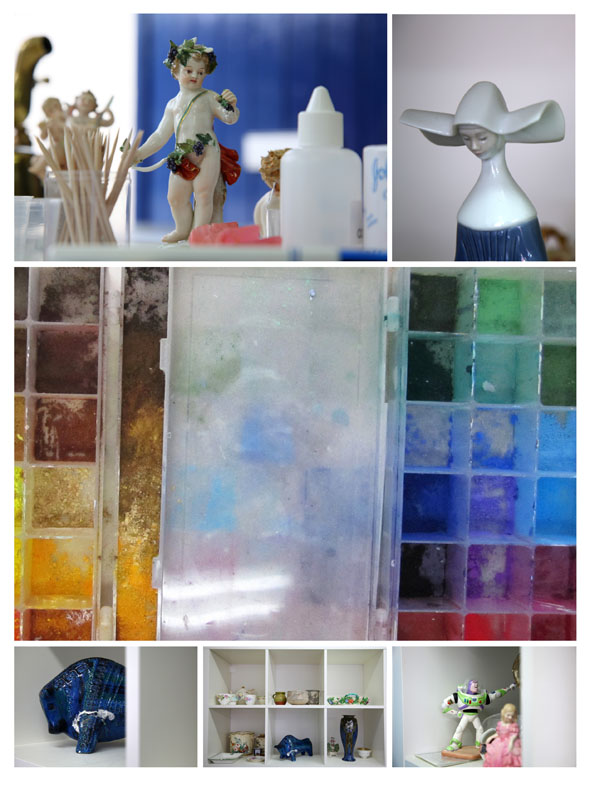
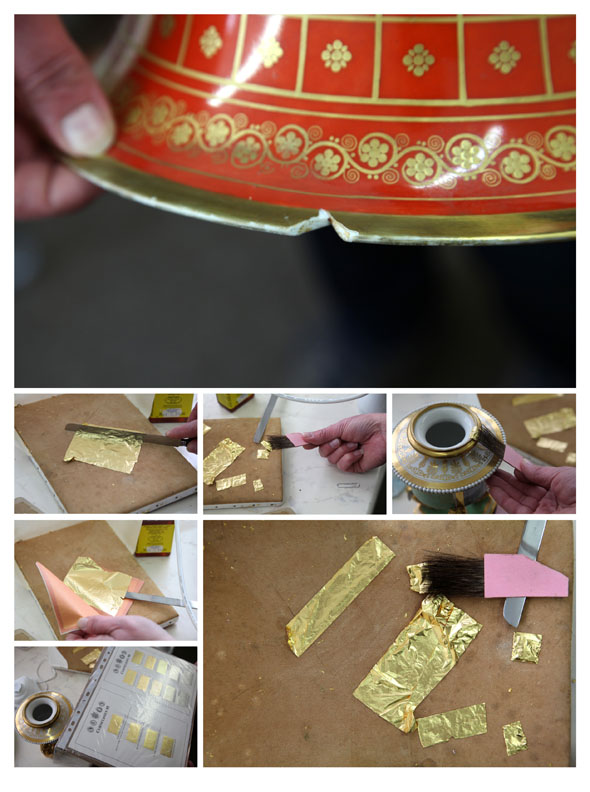
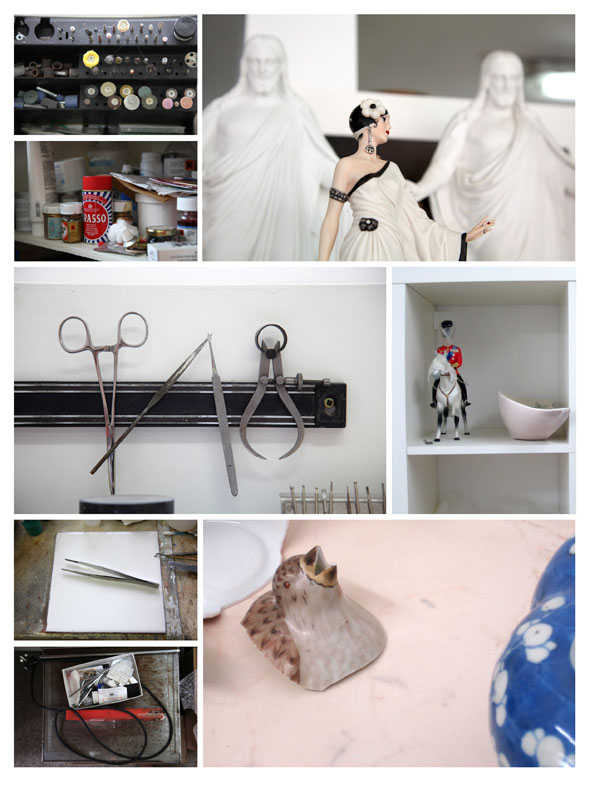

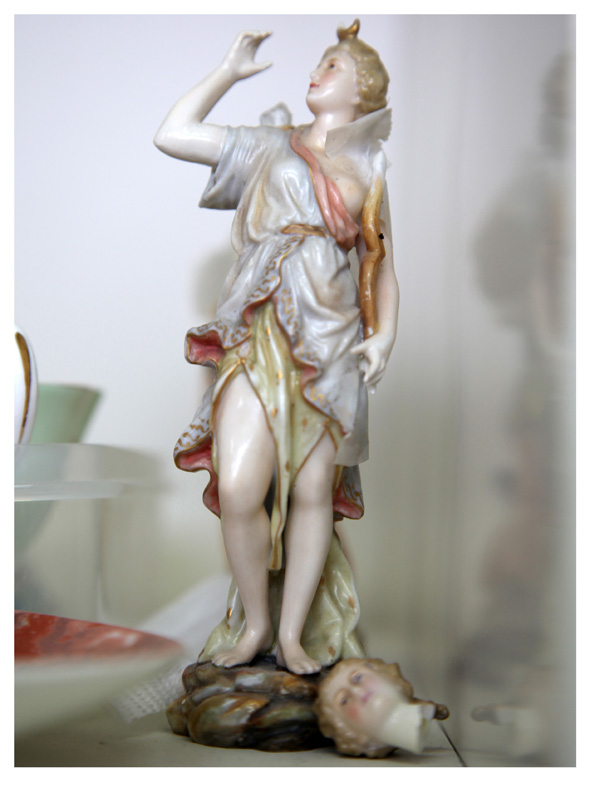
‘The photograph captures her reaching upward, looking inward, only air where her right hand should be. A faint smile plays on her lips. She wears her wounds lightly, a cap and shawl of masking tape somehow only accentuating her causal elegance and the flawless plane of her bared midriff.
What happened? A knock from a high shelf, a carelessly packed shipping carton? She has come to Helen Warren’s workshop in Budleigh Salterton, Devon, to be repaired, to be made whole again. But there are decisions—aesthetic, ethical, and practical—to be made about how the repair will be done, and what our lady will look like when she goes home.
Helen’s own words best express the distinction between ‘conservation’ and ‘restoration’, display and disguise:
“Conservation techniques aim to preserve and stabilise items for later use without seeking to disguise evidence of the original damage. A typical 'museum' type of repair would include cleaning and re-assembling broken shards to reconstruct the original shape. Some re-touching may also be necessary but the break lines would still be visible.
Restoration aims to disguise damaged areas and bring an object back to its original state by re-building or modelling missing areas, repairing and repainting. This must be carried out sympathetically with materials compatible with the object. Ethical considerations and use of reversible products are a priority in all cases of restoration.”
One of twenty photo essays featured in the book Visible mending: Everyday repairs in the South West ︎︎ published by Uniformbooks.
What happened? A knock from a high shelf, a carelessly packed shipping carton? She has come to Helen Warren’s workshop in Budleigh Salterton, Devon, to be repaired, to be made whole again. But there are decisions—aesthetic, ethical, and practical—to be made about how the repair will be done, and what our lady will look like when she goes home.
Helen’s own words best express the distinction between ‘conservation’ and ‘restoration’, display and disguise:
“Conservation techniques aim to preserve and stabilise items for later use without seeking to disguise evidence of the original damage. A typical 'museum' type of repair would include cleaning and re-assembling broken shards to reconstruct the original shape. Some re-touching may also be necessary but the break lines would still be visible.
Restoration aims to disguise damaged areas and bring an object back to its original state by re-building or modelling missing areas, repairing and repainting. This must be carried out sympathetically with materials compatible with the object. Ethical considerations and use of reversible products are a priority in all cases of restoration.”
– Caitlin Desilvey
One of twenty photo essays featured in the book Visible mending: Everyday repairs in the South West ︎︎ published by Uniformbooks.